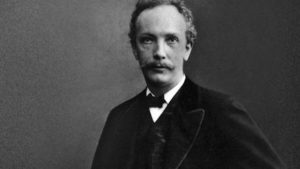
The Librettists Behind Richard Strauss’ Rarely Heard Late Operas
By David SalazarRichard Strauss, born on June 11, 1864, is one of opera’s greatest composers. And many of his operas, including “Elektra,” “Salome,” “Der Rosenkavalier,” “Die Frau ohne Schatten,” and “Ariadne auf Naxos,” are major repertoire staples.
Others still get occasional performances, including “Arabella,” “Capriccio,” and “The Egyptian Helen.”
But there are still others that for whatever reason simply never made the cut and are quite rare to see at the opera house.
When looking at the work of most masters, their late output tends to be held up as the masterworks, but this happens in reverse with Strauss. In total, he completed 15 operas, and his five most popular works were among the first seven he completed.
So what of the other operas?
The particular appeal of the early works can likely be traced to one other name – Hugo von Hofmannsthal.
The two collaborated on a total of seven operas (all the celebrated ones mentioned above with the exceptions of “Capriccio” and “Salome”), including the revisions for “Ariadne.” After that, Strauss worked with five other librettists, all of varying quality, never quite generating the same magic.
The team of Hofmannsthal and Strauss is often compared to Da Ponte and Mozart’s collaboration or Verdi and Boito’s two pristine operas, setting the bar rather high for ensuing collaborations.
Stefan Zweig and Strauss joined forces for “Die schweigsame Frau,” and the work was ultimately banned during the Nazi regime. It has seen some revivals over the years.
The composer also worked alongside Joseph Gregor on three different operas, initially at the suggestion of Zweig, who had been forced to emigrate to London. Their collaboration yielded “Peace Day,” “The Love of the Dane,” and “Daphne.” Ironically, “Peace Day” was based on an idea proposed by Zweig, and Hofmannsthal had actually left a draft for “The Love of Danae.”
Then came Clemens Krauss for “Capriccio” and Hans Adler for “The Donkey’s Shadow.” This latter opera was never completed by Strauss, but instead by Karl Haussner, and is generally not included in his list of works. The same goes for Strauss’ first intended opera, “The Fight With the Dragon,” which never came to fruition.


